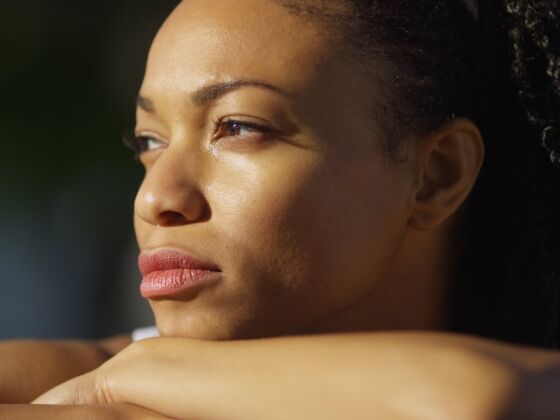I ALMOST LOST A BRAID from my head once, while waiting in line at a department store in Jecheon, South Korea. An older woman behind me had reached across her shopping cart to hold one of my extensions in her hand, but she didn’t let go when I moved forward to put my toothpaste on the conveyor. “Chin-cha moor-ee?!” Real hair?! She asked, finally relinquishing the strand.


Being a Black Alien in South Korea Is Easier Than Being a Black Alien at Home
The others in line didn’t hide their curiosity either. A little boy pointed from the front seat of his cart, grasping a handful of his mother’s shirt in his fist. She looked too. They were all waiting for my answer.
When I was the new kid at Roy Cloud School in Redwood City, one of the first things the boys asked me was if I was a gang member back in San Francisco, because “we heard there are lots of gangs up there.” I was twelve. It was a simple 40-mile move to the San Mateo County suburbs, but questions like this made me feel like an immigrant — as if I had crossed oceans and came onshore an alien.
The sixth grade class had less than 50 students and I was the only black kid on the roster. For the first week, the popular girls sat around me at lunch and asked questions about my long braids. I would have been much happier talking about MTV, or the American Girl book series, or places I wanted to see one day. I was engrossed with becoming the next Sarah Chang, but I never had the opportunity to share my preteen obsessions with anyone because I was constantly fielding questions about the locks on my head.
“How does it work? I mean, how is it attached?”
“So how long is your hair, really?”
“It’s so beautiful, too bad it’s not your real hair.”
“I didn’t know black people could grow hair that long.”
“Is one of your parents white?”
“Do you have Indian in your family?
In South Korea, I’ll ride the bus home from school and look up to discover several of my braids floating lifelike around my head. The ajumma next to me, the two behind me, and the one across the aisle will have their hands in my hair. They’ll lift the braids closer to their eyes for inspection. They’ll feel its texture between their fingertips and murmur to one another.
One night while paying for dinner at a ramen restaurant, the cook took one of my braids hanging down near her hands, and was so fascinated that she began to pull my head over the countertop by that single strand.
The children who I teach here are a little bit younger than my Roy Cloud classmates were. They point their fingers at lunch when I stand in line.
“A-foo-ree-kah! A-foo-ree-kah!” they chant.
Several years after Roy Cloud, my friend Erica told me that she was jealous of me when I was the new kid.
“Everyone thought your hair was so beautiful. The popular girls wouldn’t stop talking about it,” she said.
“It got old to them really fast,” I said. “But I still felt like a weirdo.”
The difference between then and now is that I know I will not fit in as a foreigner. As the new kid at school, and when I moved to new cities in my twenties, I played my part and tried to be less new and more regular.
As a foreigner, I’m liberated from trying to be normal. I will never be normal in South Korea. The women will keep putting their hands in my hair and pulling it out at the roots. The novelty won’t wear off like it did at the cafeteria table when I was twelve. It’s much easier to be touched by strangers when the novelty of my skin and the texture of my hair is just that, novel, unlike those times at home when questions were loaded with all kinds of hurt and history.
Outside the borders of home, I’m just a brown person with an American passport in a homogenous land. I’m not walking some color line in Korea, or maybe, I just refuse to. I find that so much easier. It’s so much easier to let them feel for themselves my hair and my countenance because we do not speak the same language. They feel for themselves the difference between our skin and hair textures. They hear the Californian cadence in my voice, and smell the Korean shampoo in the hair I paid 180,000 won for. I like being known that way. I am no longer trying. I am more comfortable in my skin — 10,000 miles from home — than I have ever been.
Now — once the hidden parts of myself boil over onto the street — I sway my hips to the beat of my music while standing at a stop light. I sing the loudest on norebang nights. I take photographs of everything that catches my eye because I’ve found that I love to capture life candidly. How annoying would life be, if it tried to strike a pose every time you looked it in the eye?